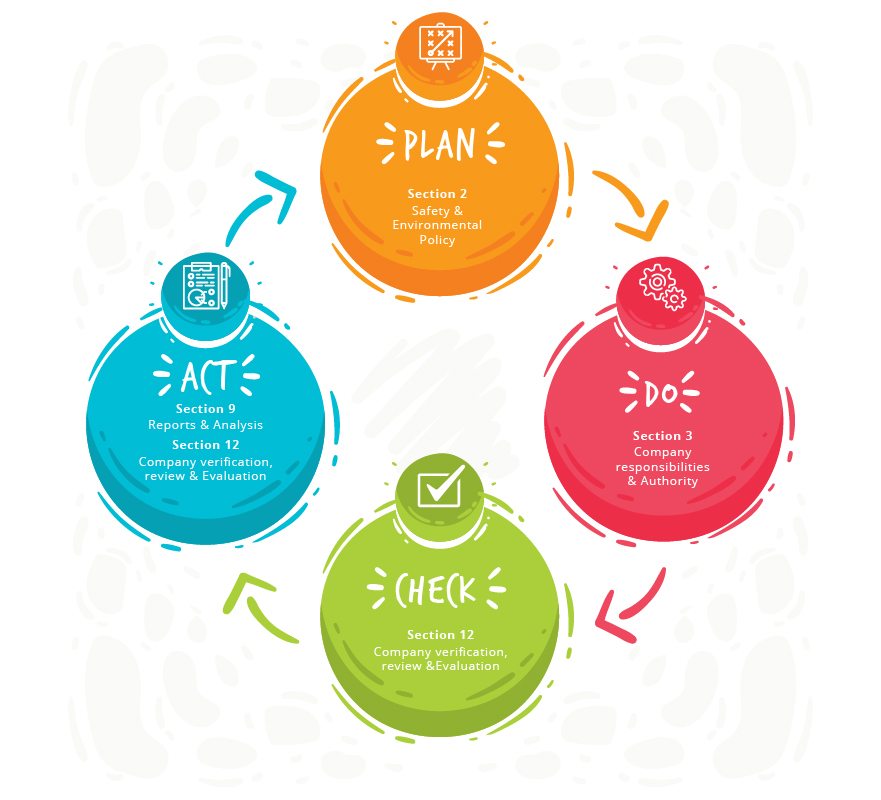It has been 20 years since the ISM code became mandatory. Widely known as the ‘International Safety Management Code’, its implementation was a landmark for shipping industry given that for the first time, each shipping organization was obliged to develop an effective safety management. Namely, a “Safety Management System” is the core requirement for the ISM Code implementation; its aim is to ensure that safety is secured, humans are protected from injury and harm, and the environment and property are not damaged.
Read in the series
- Safety Management: Why SMS are important
- Safety Management: How can shipping companies become High Reliability Organizations?
- Safety Management: Safety Culture vs Safety Climate – What’s the difference?
- Safety Management: Measuring Maturity
- Safety Management: Why Quality is important among shipping organizations
- Safety Management: Why audits are important
- Safety Management: Learning about Safety Surveys
- Safety Management: Evaluating a Crew Resource Management training
- Safety Management: How post-incident reviews can be a useful tool
- Safety Management: How to define and measure KPIs effectively
But is SMS only a paper approach to safety? Definitely no. It is the way of a shipping organization to meet its health, safety and environmental obligations and it forms a fundamental and mandatory part of the organization’s risk management strategy. Although it has been 30 years since the initial drafting of the ISM Code, there still seems to be a confusion surrounding its effective implementation.
SMS follows the principles of ‘Plan-Do-Check-Act’ which is a quality approach toward continuous improvement.

Step #1 Plan
A statement should be included in Safety Management System in the form of policy regarding the organization’s approach to safety management. But what should this policy include?
- The policy statement should include the organization’s obligations to comply with international and national legislation, rules and regulations.
- A more advanced policy statement may also include information about the organization’s attitude and values towards health, safety and environment.
- The organization needs also to develop procedures to support this policy, as well as contingency plans to respond to any incident that may occur.
- While planning to manage safety, an organization should also think about how it will measure its performance. Setting out key performance indicators can help define the standards of health, safety and environmental compliance that a company expects to achieve.
[adrotate banner="272"]
Step #2 – Do
A safety management system needs to specify the organizational structure and mechanisms for implementing policy. As a starting point, the organization needs to have a detailed understanding of its operations and the risks that accompany it. The wording used in ISM refers, that “1.2.2 Safety management objectives of the Company should, inter alia:
- provide for safe practices in ship operation and a safe working environment,
- assess all identified risks to its ships, personnel and the environment and establish appropriate safeguards; …”
This is a legal obligation for organizations to keep risks to as low as reasonably practicable, referred to as ALARP. The risk management is an integral part of an effective management system. Understanding their risk profiles helps organizations to prioritize resources to reduce risks to the ALARP level. The recognized risk profile will create organizational procedures to accomplish the standards of health, safety and environment. In this regard:
- Accountability for health and safety needs to be specified,
- Roles and responsibilities should be defined,
- Resources should be allocated, and
- The workforce involved needs to have a shared understanding of how to keep risks to a minimum.
Step #3 – Check
This a critical part of any system (quality, safety, security etc). Adequate procedures should be implemented for monitoring, evaluating and investigating health, safety and environmental performance. However, an effective safety system is not limited to recording accidents, incidents and lost time injuries, but it includes a combination of a proactive monitoring system supported by reactive actions.
In particular, monitoring systems provide information of how the safety management system is performing:
- Proactive monitoring: It involves monitoring, evaluating and checking on how well the system is performing before something happens. This may include audits, inspections, self-assessments, reviewing procedures surveys, such as health checks or employee attitude surveys.
- Reactive monitoring: It is limited to response and involves recording information, incident investigation and training based on lessons learned.
The organizational knowledge (as specified in Quality Standard) may be very useful to support such actions. The management review is the main tool to complete this stage.
Step #4 – Act
The final step in the cycle is to review and act upon the information that has been gathered. This phase incorporates:
- new information about changes in rules and regulations,
- lessons learned from within or outside the company, and
- advances in understanding and knowledge.
The management review process helps to actions for improvement, such as updating plans, re-visiting organizational arrangements, implementing new or revised measures, and adopting or adapting monitoring and evaluation processes.

































































As an FT Professor of Safety and Emergency Management, I came across this series while doing a bit of research myself. I was especially intrigued to see the Section on the difference between a Safety Culture and the Safety Climate. This is an area of Safety that has been a part of the “low hanging” fruit in safety but has generally been overlooked as to its role and importance in the entire SMS process. Integration is key for the organization but we must also look at the principle behaviors that influence the integration from understanding the people involved, the process, and the environment they all create together.